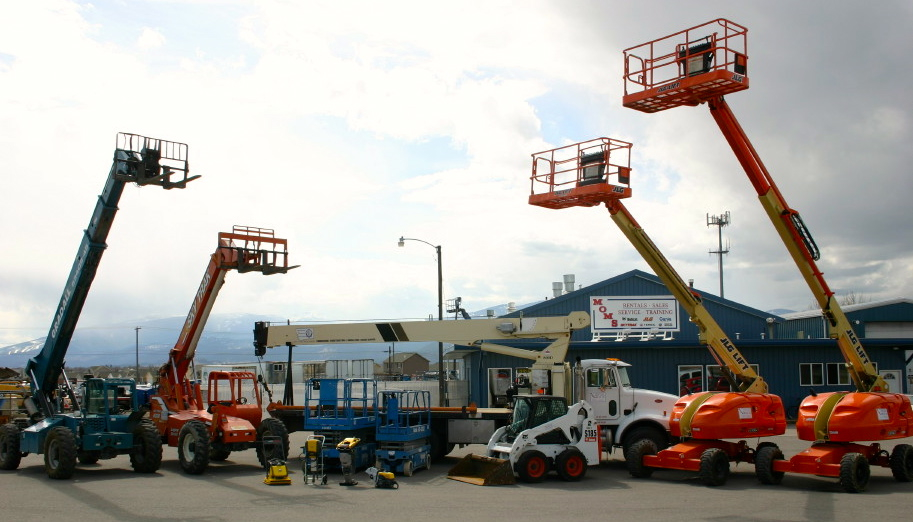Aerial Lift Rental: Versatile Lifting Solutions for High-Access Jobs
Aerial Lift Rental: Versatile Lifting Solutions for High-Access Jobs
Blog Article
Maximize Your Budget Plan by Understanding the Prices Connected With Building And Construction Devices Leasings
Comprehending the full scope of prices connected with building equipment rentals is vital for optimizing your budget plan. While the first rental charge might appear simple, numerous added expenditures-- such as transportation, fuel additional charges, and maintenance-- can quickly gather, impacting your financial planning. In addition, being mindful of different charges and the intricacies of rental agreements can aid prevent unanticipated economic worries. What approaches can be employed to properly handle these prices and make sure a much more effective rental experience?
Introduction of Rental Costs
When thinking about building equipment rentals, recognizing the linked expenses is critical for reliable budgeting and task planning. Rental costs can vary dramatically based upon a number of variables, consisting of tools type, duration of leasing, and area. The initial rental charge frequently shows the devices's market need and its connected functional capacities, affecting the overall cost.
In enhancement to the base rental price, supplementary prices might emerge, such as transport fees, fuel surcharges, and upkeep fees. It is necessary to make up these extra expenditures to accurately assess the total cost of leasing devices. Moreover, the rental duration can influence prices; longer services might certify for reduced rates, while short-term rentals might incur greater daily fees.

Malfunction of Rental Rates
A thorough understanding of rental prices is essential for service providers and project supervisors intending to enhance their spending plans. Rental prices for construction tools typically include several parts, consisting of base prices, time-based fees, and use fees.
Base rates are the core costs related to the service of the equipment, typically determined by the kind and dimension of the machinery. These rates can vary considerably, influenced by elements such as tools demand, schedule, and regional market fads. Time-based charges, which may be daily, weekly, or monthly, offer to suit different job timelines and rental durations.
In addition, rental prices may include usage costs, which apply when tools is made use of beyond a specified threshold, making sure that the rental company can represent damage. Seasonal demand changes can also influence rental prices, with peak construction seasons commonly commanding higher rates.
In addition, recognizing the rental company's policies regarding upkeep and insurance policy can provide further understanding into the total expense structure. By analyzing these elements, specialists can make enlightened choices, making certain the choice of rental tools straightens with both task requirements and budget restraints.
Additional Fees to Take Into Consideration
Comprehending the intricacies of extra charges is vital for professionals to manage their general service costs effectively. Beyond the basic rental prices, numerous supplementary charges can substantially influence the total expense of equipment service. These costs typically consist of distribution and pick-up charges, which can vary based on range and logistics included in moving the devices to and from the work website.
Additionally, some rental business might enforce fuel surcharges if the devices is returned with less gas than when rented. It is likewise vital to recognize prospective cleaning charges, specifically for customized tools that needs extensive upkeep after usage.

Extensively assessing the rental agreement and making clear these added costs upfront can aid specialists make sure and stay clear of unexpected costs that budget plans remain intact throughout the task lifecycle.
Upkeep and Repair Service Expenses
Normal repair and maintenance expenditures are typically ignored factors that can significantly affect the total price of building equipment leasings. When renting devices, it is vital to take into consideration not just the rental costs but additionally the prospective expenses related to maintaining the equipment in optimum operating condition.
Several rental companies include standard upkeep as part of the rental agreement; nevertheless, extra considerable repair work or unexpected failures can bring about added costs. It's necessary to review the rental contract thoroughly to comprehend what maintenance solutions are covered and what responsibilities drop on the occupant.
Additionally, devices that is not well-kept can bring about inefficiencies on the job site, possibly creating hold-ups and raising job costs. To minimize these dangers, it is suggested to perform routine evaluations and keep open interaction with the rental provider relating to any type of concerns that occur throughout use.
Insurance Coverage and Responsibility Costs
Insurance policy and obligation prices are vital components that can considerably affect the overall cost of construction equipment rentals (construction equipment rentals). These expenses guarantee that both the rental company and the client are shielded from possible monetary losses occurring from mishaps, damages, or theft during the rental period

Furthermore, clients must understand any type of deductibles or exemptions in the insurance coverage, as these can affect prospective out-of-pocket costs. Recognizing the conditions of official statement any kind of insurance policy protection is crucial to prevent unexpected costs. Eventually, budgeting for insurance and responsibility expenditures can aid ensure a smoother rental experience and protect against economic risks related to building tasks.
Verdict
In conclusion, a comprehensive understanding of the prices linked with building equipment rentals is essential for effective budget plan administration. Inevitably, informed decision-making regarding devices rentals adds to the general success of building and construction link undertakings.
Rental prices can differ significantly based on several variables, including devices kind, period of leasing, and location (forklift rental). The rental period can impact pricing; longer services may qualify for discounted rates, while short-term leasings might sustain greater day-to-day construction equipment transport costs
By performing comprehensive study and involving with credible rental business, service providers can properly browse the complexities of rental rates, ultimately optimizing their financial resources.
Past the standard rental rates, numerous supplementary charges can considerably influence the complete price of devices service. Rental business usually give responsibility insurance that covers injuries to 3rd parties or damage to residential or commercial property, while equipment damages insurance policy can cover the price of fixings or replacement if the rented equipment is damaged.
Report this page